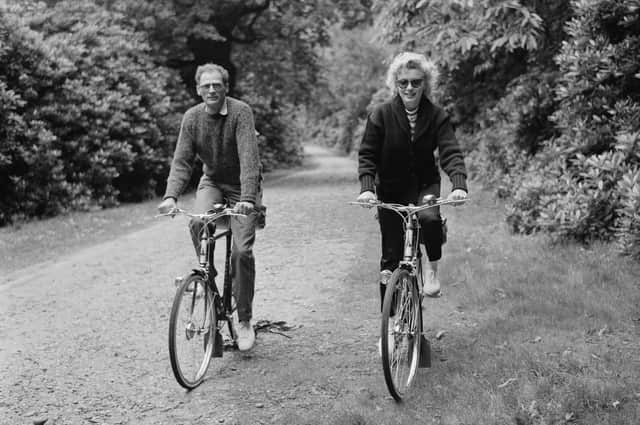Marilyn Monroe film Blonde sounds like shallow guff based on director Andrew Dominik's talk of 'well-dressed whores' and more – Laura Waddell
This article contains affiliate links. We may earn a small commission on items purchased through this article, but that does not affect our editorial judgement.


At Saudi Arabia’s Red Sea International Film Festival, New Zealand director Andrew Dominik was in discussion about whether his Netflix biopic Blonde could be exploitative of its subject, Marilyn Monroe. “Which is kind of strange,” he said, “because she’s dead.” He might as well have said he doesn’t give a s***.
Dominik wrote the screenplay for Blonde himself, adapting it from a 2000 novel of the same name by Joyce Carol Oates, herself no stranger to mixed receptions. While the book is not a straightforward telling of Monroe’s life, a savage Kirkus review of Blonde’s original publication said: “Whatever Monroe’s sins and limitations were, they didn’t merit this contemptible insult to her memory. Oates should be ashamed of herself.”
Advertisement
Hide AdAdvertisement
Hide AdSpeaking to the New Yorker, Oates acknowledged herself to be “interested in the mystery of personality, how our personalities arise and then how they fade”, adding, “I think a novelist who is sympathetic with her characters will make all the characters seem believable.”
Indeed, even depictions of villains are richer with some understanding of their psyche. By the same token I would expect a movie, whose director is openly contemptuous of its subject, to be shallow guff.
In an outtake from an interview with BFI’s Sight and Sound magazine posted on Twitter, Dominik asked “Does anyone watch Marilyn Monroe movies?” and asserted Gentlemen Prefer Blondes was about “well-dressed whores”. Making it into the finished interview is his speculation whether Diamonds Are A Girl’s Best Friend is “just romanticised whoredom”.
I can’t withhold from my reader the further snippet, “Blonde is supposed to leave you shaking. Like an orphaned rhesus monkey in the snow”, which made me laugh out loud until I recalled the grim reality the film is about sexual trauma. The New Yorker says it “wallows” in this, “happy to victimise her, over and over”.
A review in the LA Times summarised Blonde by saying it “isn’t really about Marilyn Monroe. It’s about making her suffer”. The pro-choice US campaign group Planned Parenthood, alluding to a scene featuring a CGI foetus, have called it “anti-abortion propaganda”. Not enticed even by the wacky, tacky claim from lead star Ana de Armas that the set was haunted by Marilyn Monroe’s ghost, I haven’t yet seen Blonde. Why would any of this make me want to?
Oates, who said she was pleased with Dominik’s adaptation, going so far as to call it “a work of art” and describing his vision as “parallel with my own, or identical to my own”, also admits “I had to stop watching about midway through. The film is emotionally exhausting.” It sure sounds it.
But perhaps it is the fault of the modern viewer. The director posited: “We’re living at a time where it’s very important to present women as empowered, and they want to reinvent Marilyn Monroe as an empowered woman… if you’re not showing them that then it upsets them.” Continuing his remarks in Saudia Arabia, he added: “Criticism only hurts if you agree with it. And I didn’t really agree with any of it. I think the film is great.”
Self-reflection, perhaps even more of a challenge than the ability to perceive women as multi-faceted, nuanced human beings.
Comments
Want to join the conversation? Please or to comment on this article.
